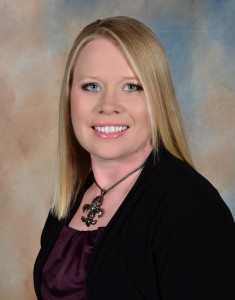
With my master’s graduation looming in January and finally settling after two years of travel, I’m once again on the prowl for stable employment. Consulting has been a wonderful learning experience that I plan to keep on the side, but it’s time to re-enter the workforce and work with a team.
I’m having feelings of déjà vu to when I was finishing my bachelor’s degree and just entering into my career nine years ago – perfecting my resume, crafting cover letters, and spending countless hours applying for positions all over the United States. This time, though, it’s a CV I’m perfecting and I’m job hunting in Switzerland.
Differences between job hunting in Switzerland and the United States
Before I actually got to Switzerland last month, I had already begun my job search while still in the United States. I also approached the job search as I would in the United States. Search for jobs. Craft a cover letter to that particular position. Send in my resume and cover letter. Get rejected.
Researching best practices for job hunting in Switzerland, I recently attended a professional networking event for career planning in the country hosted by InterNations. Dainel Müller and Julien Lassueur, human resources consultants for the international consultancy talent management firm Mercuri Urval, provided an informational and insightful presentation on the process of job hunting in Switzerland. The tips I gained from the event will hopefully land me a job here soon and help others in the same situation.
1.Have a strategy
A guaranteed way to have your application trashed is to appear to be applying to every position you can find. Successful job hunting in Switzerland requires you to be focused. Müller and Lassueur suggested to first clearly decide what job you want in what industry. Then identify your top 10 picks of companies with that position in that field and apply to them. Messaging of why you specifically chose that position and that company should be made clear through your cover letter and your CV.
2. Use a CV, not a resume
Most European countries prefer a CV (Latin for curriculum vitae), and the main difference between a CV and a resume is the personal information. It’s almost a contradiction in terms when it comes to the Swiss CV. In a country known for its privacy, when it comes to the job hunt, that seems to fly out the window. The first page of a good CV includes a professional photo, your date of birth and marital status. As a woman, I’ve even been encouraged to include if I’m pregnant. All these would be taboo if not illegal to include on your resume in the U.S., but here it is perfectly acceptable and expected.
Typically, CVs are two pages. They include the same information an American resume does – objective, work experience, education, skills, languages, awards and extracurricular activities. You can either structure them chronologically or functionally. In Switzerland, particular attention is paid to clear and error-free content.

3. Apply in the language of origin
There are four official languages in Switzerland – German, French, Italian and Romansh. Whatever language the job posting is in is what you should submit your documents in for consideration. Most job postings require you speak English and the language of the region where the job is located (why I’m currently studying German).
4. Submit all requested documents
When first applying for a job in the United States, it’s typical to only submit a cover letter and resume. In Switzerland, however, even in the first stages you may be asked to submit a cover letter, your CV, your school records, any certificates proving your qualifications, and letters of recommendation. Whatever is requested in the job posting should be followed.
5. Use Pull Networking instead of Push Networking
Networking is important in both countries, but as modesty is more respected in Switzerland, pulling others to find you is preferred to pushing your brand on others. Müller and Lassueur suggested finding ways, such as joining professional organizations, where those you want to meet would be instead of just cold calling.
Professional online networks also differ in Switzerland. Though LinkedIn is a great start, more Swiss professionals can be found on Xing. Job listings are also best found at Indeed.
Informational interviews are not an understood concept in Switzerland. When I was searching for my first professional position, I conducted interviews with public relations professionals in agencies, corporate offices and non-profits just to learn what the job would be like, how I could supplement my experience, and other general career questions. Here, though, there is no such thing. Many Swiss professionals don’t understand the request but think you’re asking for a job interview.
6. The Interview
When deciding to call someone for an interview, Müller and Lassueur said they consider three questions:
1) Is the person qualified for the job?
2) Does the person want to do the job?
3) Will the person stay more than three years?
Once these questions are successfully answered, then a candidate is called in for an interview. Most of the same rules of interviewing apply in Switzerland as they do in the U.S. The questions are generally the same, except for ones that attempt to gauge how well-suited an expat is for life in the country. Back to Question 3 above, companies don’t want to invest in someone who won’t be able to adapt to the Swiss culture. It’s also important in Switzerland to let the employer initiate salary negotiations.
Thank you notes should be delivered in the method you accepted the interview. outlining the key points of your interview. Keep them short and professional as too much gush will be viewed as insincere (remember, modesty is valuable in Switzerland).
How do you approach job hunting?
It has been said the process of job hunting is a job in and of itself. Job hunting in Switzerland certainly feels that way. Have you searched for jobs outside your home country? What tips worked best for you?
-Monica

Good luck, Monica!!! That must be interesting! I’m about to start mine soon, too. Crazy since I began my last job in 2005! Yikes!
Good luck, Kristin! It certainly can be challenging, but I’m trying to focus on the experience.
So… did you get it?